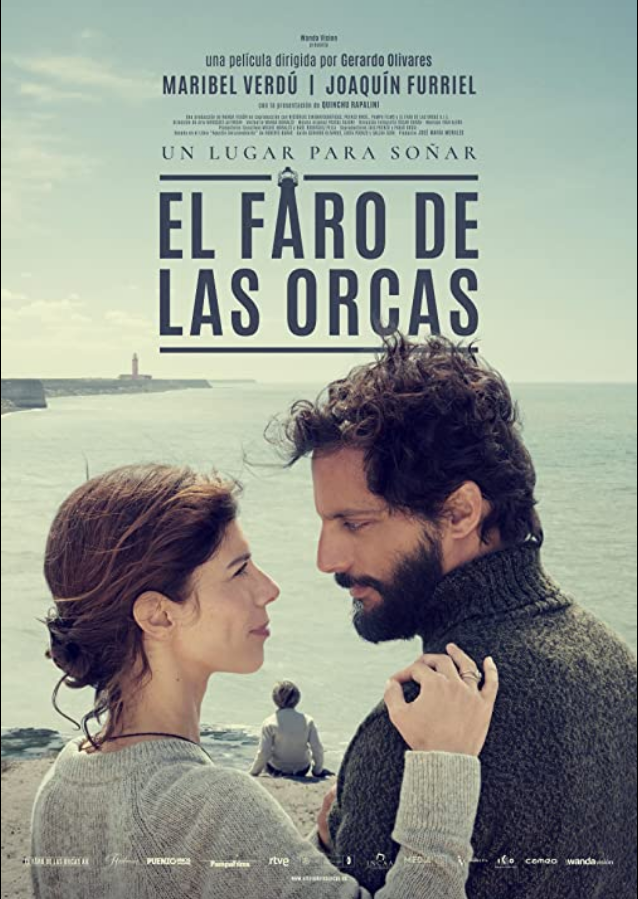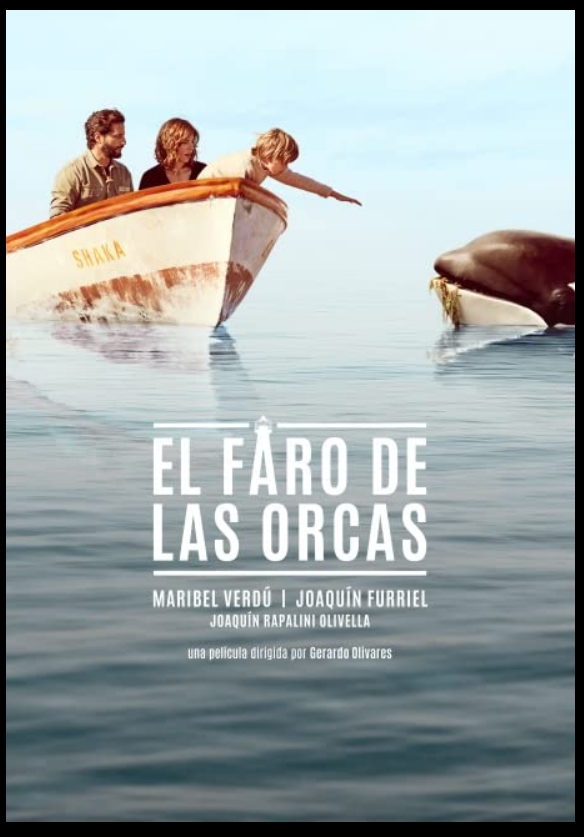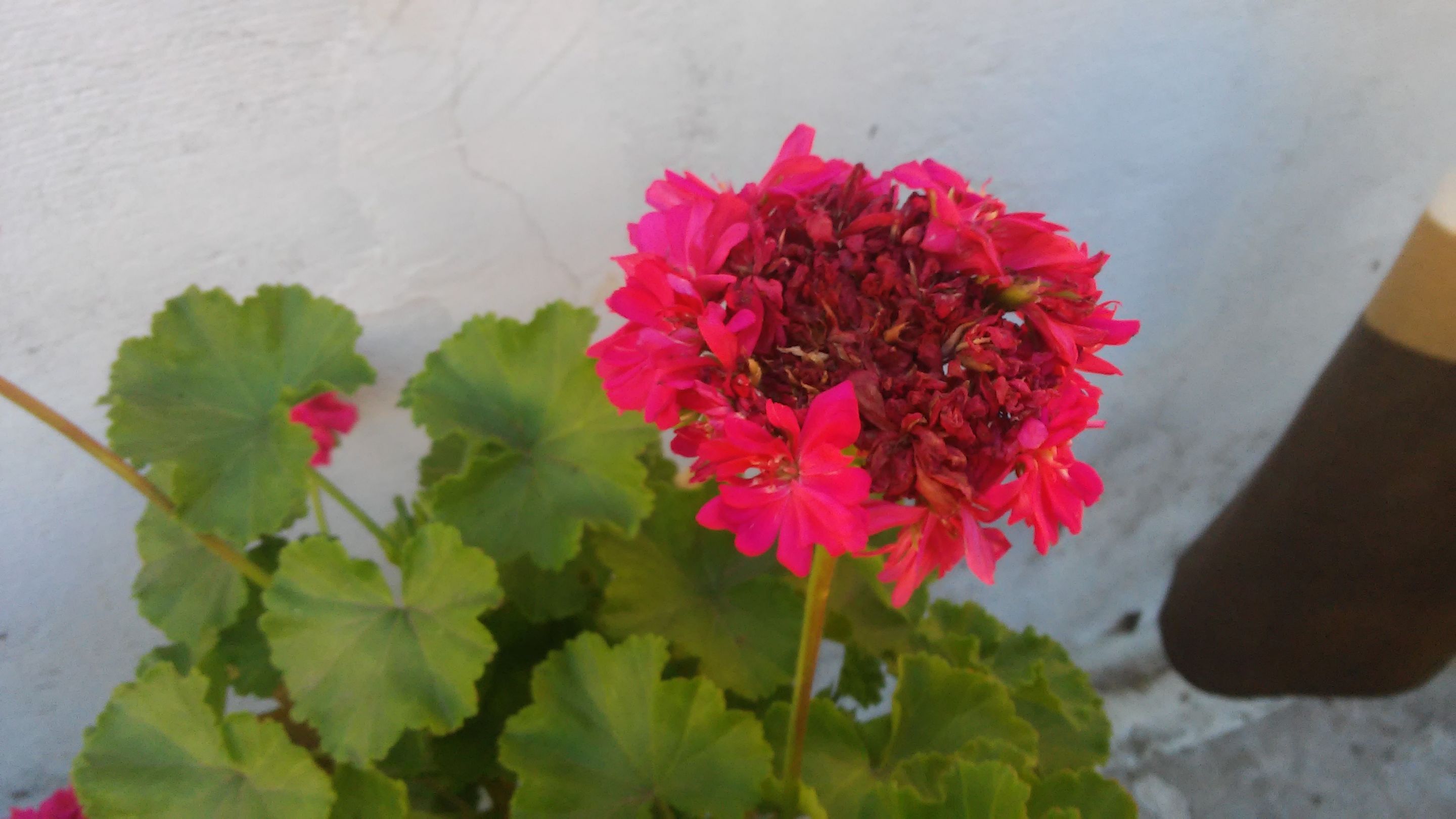[ENG/ESP] The Lighthouse of the Orcas by G. Olivares closes the trilogy of films set in natural environments of dazzling beauty. / El Faro de las Orcas de G. Olivares cierra la trilogía de films ambientados en entornos naturales de deslumbrante belleza.

The Lighthouse of the Orcas is a film set in a natural environment that dazzles in beauty as is the Valdes Peninsula, in the heart of Patagonia Argentina.
It is the third film that culminates the Man and Animal Trilogy in which its director, the Spanish documentary filmmaker Gerardo Olivares, has wanted to show the close ties that unite human beings with nature.
I have already referred to the two previous films in this Community with the reviews:
Brothers of the Wind is an excellent symbiosis between documentary and fiction by Gerardo Olivares.
and
Among Wolves is the first work of Olivares' trilogy dedicated to the human-animal relationship.
El Faro de las Orcas es una película ambientada en un entorno natural que deslumbra en belleza como lo es la Península Valdés, en plena Patagonia Argentina.
Es la tercera película que culmina con la Trilogia El Hombre y El Animal en la cuál su director, el documentalista español Gerardo Olivares, ha querdi poner de manifiesto los estrechos lazos que unen el ser humano con la naturaleza.
De las dos anteriores ya me he referido en esta Comunidad con las reseñas:
Hermanos del Viento es una excelente simbiosis entre documental y ficción de Gerardo Olivares.
y
Entrelobos, es la opera prima de la trilogía de Olivares dedicada ala relación hombre-animal.


The film is inspired by a true story. A mother who has a son suffering from autism finds in the wild solitude of the Patagonian landscapes the possibility of a cure. And to find in the child an emotional balance that she could not find in the Spanish capital, amidst the chaos of the big city.
With a plot similar to the one developed by Robert Redford in his film "The Man Who Whispered to Horses".
In this case it is a man (a park ranger) who whispers with his harmonica and attracts the orcas with a natural.
In Gerardo Olivares' films, in which the documentary element of nature is predominant, nature serves the protagonists as an emotional therapy, absolutely natural.
El film se inspira en una historia real. Una madre que tiene un hijo que sufre de autismo encuentra en la soledad salvaje de los paisajes patagónicas la posibilidad de la cura. Y de encontrar en el niño un equilibrio emocional que en la capital española, en medio al caos de la gran ciudad, no podía encontrar.
Con un argumento similar al desarrollado por Robert Redford en su film: "El hombre que susurraba a los caballos".
En este caso es un hombre (un guardaparques) que con su armónica susurra y atrae a las orcas con un natural.
En las películas de Gerardo Olivares, en las cuáles el elemento documentalístico de la naturaleza es preponderante, ésta sirve a los protagonistas como una terapia emocional, absolutamente natural.

Lola, who lives in Spain (magnificently played by Maribel Verdú) travels with her autistic son, Tristán, to Patagonia, Argentina, to meet Beto, a wildlife ranger whom she saw with her son in a documentary about killer whales.
Since he was a child, Beto has always had a very special relationship with these cetaceans that cause so much fear, not only to other marine animals, but also to human beings.
Natural predators of the marine fauna, they have created around them a kind of metropolitan legend of fear and even terror. To which the film industry itself has also contributed in its time.
The relationship that will gradually begin to develop between the little boy and the cetaceans will change his life forever.
The spirit of nature and the search for the essential values of life will end up being the best cure not only for the child but also for the mother.
Lola que vive en España (magníficamente interpretada por Maribel Verdú) viaja con su hijo autista, Tristán, hasta la Patagonia Argentina para encontrarse con Beto, un guardafauna a quien vio con su hijo en un documental sobre las orcas.
Beto desde muy niño ha tenido siempre una relación muy especial con estos cetáceos que tanto miedo causan, no solo a los restantes animales marinos, sino al mismo ser humano.
Predadores naturales de la fauna marina se ha terminado por crear en torno a ellos una especie de leyenda metropolitana de miedo y hasta terror. A lo cual ha contribuído, también en su momento, la propia industria cinematográfica.
La relación que poco a poco comenzará a instaurarse tra el pequeño y los cetáceos cambiará su vida para siempre.
El espíritu de la naturaleza y la búsqueda de los valores esenciales de la vida terminarán siendo la mejor cura no solo para el niño sino también para la madre.

Maribel Verdú: Lola
Joaquín Furriel: Beto
Joaquín Rapalini Olivella: Tristán
Alan Juan Pablo Moya: Inti
Ana Celentano: Marcela
Ciro Miró: Manolo
Eduardo «Camión» Domínguez: Anciano
Errol Kenny Hughes: Paisano
Federico Barga: Quiñones
Isidoro del Carmen: Esquilador
Jesús Nazareno Arriagada: Músico
José Alfredo Arriagada: Músico
Juan Antonio Sánchez: Junco
Julio Cesar Arriagada: Músico
Luis Nieves: Doble Rapalini
Maria A. Abraham: Camarera
Mario Arriagada: Músico
Osvaldo Santoro: Bonetti
Roberto Bubas: Hombre
Zoe Hochbaum: Martina

The virtue and special ability of a documentary filmmaker to make films committed to the environment and the environment of the human being with nature are once again put to the test in this film by Gerardo Olivares.
The human being does not always adapt to the environment. Most of the time he modifies it at his pleasure and ends up destroying it.
Although Olivares' films are not a means of denunciation, the denunciation itself is implicit in each frame, with the survival of the species in all its beauty and cruelty in places that are still intact, with their primordial virginity.
Rescuing those simple values of life is the most appropriate reading not only of this film but of the rest of this beautiful trilogy.
La virtud y una especial habilidad de documentalista de hacer películas comprometidas con el medio ambiente y el entorno del ser humano con la naturaleza una vez son puestas a prueba en esta película de Gerardo Olivares.
El ser humano no siempre se adparta al medio ambien te. La mayor parte de las veces lo modifica a su placer y termina destruyéndolo.
Si bien las películas de Olivares no son un medio de denuncia, la denuncia misma está implícita en cada fotograma, con la supervivencia de las especies en toda su belleza y crueldad en lugares que aún se mantienen intactos, con su virginidad primordial.
Rescatar esos valores simples de la vida es la lectura más apropiada no solo de esta película sino del resto de esta hermosa trilogía.












Comments